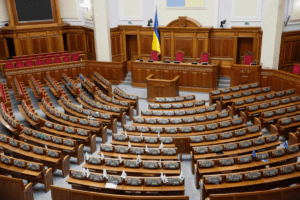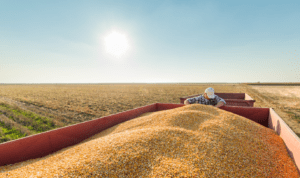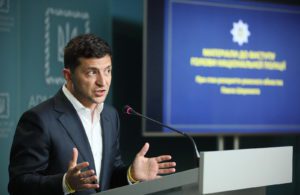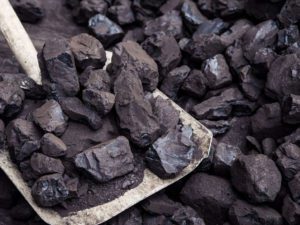
Ukraine’s Verkhovna Rada has ratified a protocol on Amendments to the Convention between the Government of Ukraine and the Republic of Turkey for avoidance of double taxation with respect to taxes on income and real estate.
An Interfax-Ukraine correspondent has reported that a total of 320 MPs backed bill No. 0005 on ratification of the amendments on Wednesday.
According to the conclusion of the foreign policy committee, the changes relate, in particular, to the procedure for taxation of income received by residents of the state, which is party in the treaty, from the disposal of shares or other rights; the procedure for taxation of remuneration received in connection with employment on a ship, aircraft, or other transport operated by an enterprise of the state, which is party in the treaty. The changes will also concern the exchange of information.

The U.S. Department of Agriculture (USDA) reviewed downwards its forecast for exports of rapeseeds from Ukraine in the 2019/20 agricultural year (September-August) by 0.1 million tonnes compared with the August forecast, to 2.7 million tonnes.
According to the September report, published on the USDA website, the forecast for the export of Ukrainian soybean meal was reduced by 0.2 million tonnes to 0.7 million tonnes due to stronger domestic demand.
In general, the forecast for the export of oilseeds from Ukraine in September was reduced by 0.1 million tonnes compared to the forecast in August, to 4.75 million tonnes, meal exports – by 0.2 million tonnes, to 5.8 million tonnes, while at the same time, the forecast for the export of vegetable oil remained at 6.3 million tonnes, oilseed refining – at 17.15 million tonnes.
As reported with reference to the Ministry of Agricultural Policy and Food, in 2018, Ukraine harvested 13.7 million tonnes of sunflower, 4.4 million tonnes of soybeans, and 2.6 million tonnes of rapeseed.

Vice-President for Energy Union Maroš Šefčovič has said that underground storage filling levels in the European Union (EU) and Ukraine are good.
“A few words on preparations ahead of this winter. I am glad to say that EU underground storage filling levels are very good – currently standing at 96% of full capacity,” Šefčovič said at a press conference in Brussels after the EU-Ukraine-Russia trilateral gas talks.
“Ukraine’s underground storage filling levels are also good – currently at around 19.6 billion cubic meters, almost 4 billion cubic meters above levels in September last year,” he said.

President of Ukraine Volodymyr Zelensky has dismissed Valeriy Yevdokymov from the post of Deputy Head of the Foreign Intelligence Service (SVR) and appointed him the head of this department. The relevant decrees of September 20 are published on the website of the head of state. Sides in trilateral gas talks agree that future contract to be based on EU law – Šefčovič

Coke plants of Ukraine imported 7.19 million tonnes of coking coal and coal concentrate for coking in January-August 2019, which is 7% less than in January-August 2018. According to the Ukrmetallurgprom association, in February 2019, 760,000 tonnes was imported (780,000 tonnes in July 2019).
Ukrainian coal in the amount of 2.26 million was shipped to the plants in January-August 2019, which is 32% more compared with January-August 2018. In August, 430 tonnes were delivered (110% compared with July).
In January-August 2019, Ukrainian coke plants received 9.45 million tonnes of coking coal, which is the same as in January-August 2018. The share of imported coal was 76.1%. In August 2019, 1.19 million tonnes of coking coal was shipped (103% compared with July 2019).
Steel enterprises in Ukraine received 6.16 million tonnes of coke in January-August 2019 (97% compared with January-August 2018), including 5.8 million tonnes of Ukrainian coke and 0.36 million imported coke. The share of imported coke of total supplies was 5.8%.
In August 2019, steel enterprises received 753,000 tonnes of coke (106% compared with July), including 733,000 tonnes of Ukrainian coke and 20,000 tonnes of imported coke.

The European Bank for Reconstruction and Development (EBRD) and the European Investment Bank (EIB) are ready to provide a targeted loan in the amount of EUR 900 million to Ukraine to develop the road sector, acting Head of the State Automobile Roads Agency of Ukraine (Ukravtodor) Slawomir Nowak has said. “I have already held negotiations with the EBRD and the EIB. A new credit line will be opened for Ukraine in the amount of EUR 900 million,” he said.
According to Nowak, the negotiations were very difficult, but trust in the state and its managers ultimately allowed for a positive solution.
“Within the framework of this new credit line, we will also offer to finance the Weight-in-Motion system at the next stage,” the acting chief of Ukravtodor said.
Nowak also said that he recommended that Minister of Infrastructure Vladyslav Krykliy eararks funds from the Road Fund allocated for road safety to the installation of the Weight-in-Motion (WiM) system.
As reported, Ukravtodor launched in test mode the first two WiM points on the Kyiv-Chop highway.
On September 11, the Rada adopted at second reading a bill allowing automatic recording of violations during weight monitoring on roads.
Weight-in-Motion (WiM) systems will fulfill a function of pre-selection for inspectors of the State Service of Ukraine for Transport Safety until a law allowing automatic weight and weight control on roads is passed.
Ukravtodor previously planned in October to launch the first six WiM points at the entrances to Kyiv. In general, it is planned to install up to 100 WiM points.